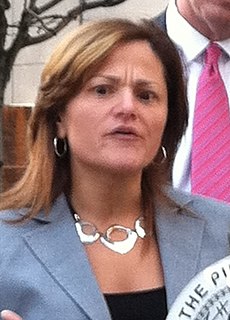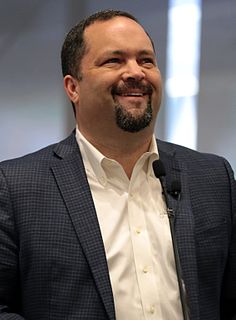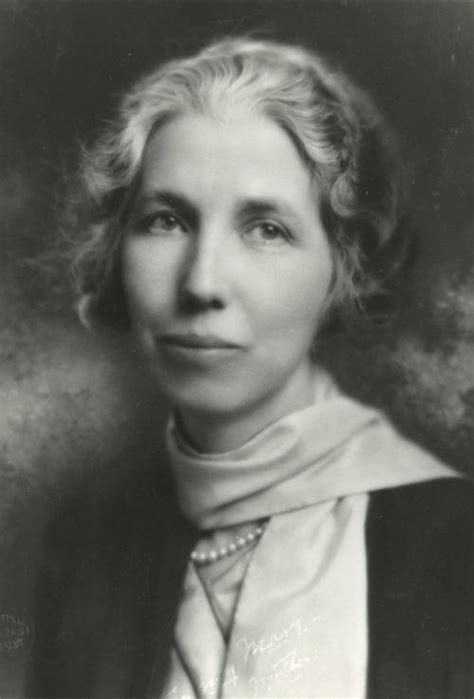Top 201 Incarceration Quotes & Sayings - Page 4
Explore popular Incarceration quotes.
Last updated on November 6, 2024.
If we continue to tell ourselves the popular myths about racial progress or, worse yet, if we say to ourselves that the problem of mass incarceration is just too big, too daunting for us to do anything about and that we should instead direct our energies to battles that might be more easily won, history will judge us harshly. A human rights nightmare is occurring on our watch.
Being a figurehead for those with family members in prison is somewhat new for me. Something I've discovered since my father's incarceration is that the prison system is broken. My first-hand experiences have taught me that reform needs to happen sooner than later. I'm most interested in mentoring children with parents in prison. When a parent is sentenced to a jail term, the child is sentenced to the same time to be spent without a mother or father. No child should suffer a stigma or lack support and guidance because of the sins of a parent.
During my incarceration Mother visited me. She had in some way managed to leave the workhouse and was making an effort to establish a home for us. Her presence was like a bouquet of flowers; she looked so fresh and lovely that I felt ashamed of my unkempt appearance and my shaved iodined head.'You must excuse his dirty face,' said the nurse.Mother laughed, and how well I remember her endearing words as she hugged and kissed me: 'With all thy dirt I love thee still.
We have to change laws. We have to change our approach to policing and incarceration in general. But we can get the population to a point where we can then go to the community-based facility models, where people should be able to await their trial dates, or if you're in jail for a year or less, if you have some sort of time that you have to spend in jail, that you can do it closer to your networks. Your family can visit you. You can talk about other ways of having people complete their time.
For those who say that the war on drugs and the system of mass incarceration really isn't about race, I say there is no way we would allow the majority of young white men to be swept into the criminal justice system for minor drug offenses, branded criminals and felons, and then stripped of their basis civil and human rights while young black men who are engaged in the same activity trot off to college. That would never be accepted as the norm.
From the baking aisle to the post office line to the wrapping paper bin in the attic, women populate every dark corner of Christmas. Who got up at 4 a.m. to put the ham in the oven? A woman. . . . Who sent the Christmas card describing her eighteen-year-old son's incarceration as 'a short break before college?' A woman. Who remembered to include batteries at the bottom of each stocking? A woman. And who gets credit for pulling it all off? Santa.That's right. A man.
When young black men reach a certain age - whether or not there is incarceration in their families - they themselves are the target of police stops, interrogations, frisks, often for no reason other than their race. And, of course, this level of harassment sends a message to them, often at an early age: No matter who you are or what you do, you're going to find yourself behind bars one way or the other. This reinforces the sense that prison is part of their destiny, rather than a choice one makes.
If we want to do more than just end mass incarceration—if we want to put an end to the history of racial caste in America—we must lay down our racial bribes, join hands with people of all colors who are not content to wait for change to trickle down, and say to those who would stand in our way: Accept all of us or none.
When you talk about "white privilege", you're talking about something systemic. When you're talking about "black privilege" it's something spiritual because we as black people tap into a divine system that a lot of other cultures and races can't tap into and that system allows us to prosper in spite of everything that's been thrown our way from slavery to segregation to mass incarceration. We have a privilege pre-ordained by God that nothing and no one can stop.
Furthermore, the financial and social investment in prisons means that black and brown youth become, essentially, fodder for the machinery of capitalized incarceration. The steady supply of guns in the U.S. makes an already untenable situation even more dangerous, and all of us must raise our voices, write to Congress, hit the streets in protest, attend budget meetings of local municipalities - all to state our opposition to such criminal procedures and practices for our youth.
We are all implicated when we allow other people to be mistreated. An absence of compassion can corrupt the decency of a community, a state, a nation. Fear and anger can make us vindictive and abusive, unjust and unfair, until we all suffer from the absence of mercy and we condemn ourselves as much as we victimize others. The closer we get to mass incarceration and extreme levels of punishment, the more I believe it's necessary to recognize that we all need mercy, we all need justice, and-perhaps-we all need some measure of unmerited grace.
In order to bring down the incarceration rate, you've got to start with the beginning of life. You've got to make sure that parents and schools are prepared to prepare young people for success. You've got to deal with the next stage of life. You've got to make sure that people have the opportunity to work at a good job, they have access to good healthcare, and that they have the opportunity to build wealth over time.
Junior was eleven. The statement is significant. There are a few peevish people in the world who believe that all eleven-year-old boys ought to be hung. Others, less irritable, think that gently chloroforming them would seem more humane. A great many good-natured folks contend that incarceration for a couple of years would prove the best way to dispose of them.
The poverty rate among black married couples has been in single digits ever since 1994. You would never learn that from most of the media. Similarly you look at those blacks that have gone on to college or finished college, the incarceration rate is some tiny fraction of what it is among those blacks who have dropped out of high school. So it’s not being black; it’s a way of life. Unfortunately, the way of life is being celebrated not only in rap music, but among the intelligentsia, is a way of life that leads to a lot of very big problems for most people.
Over the last few years a lot of people have become aware of the inequities in the criminal justice system, right now, with our overall crime rate and incarceration rate both falling, we're at a moment when some good people in both parties, Republicans and Democrats and folks all across the country, are coming up with ideas to make the system work smarter and better.
Just providing information about how bad things are, or the statistics and data on incarceration by themselves, does lead to more depression and resignation and is not empowering. The information has to be presented in a way that's linked to the piece about encouraging students to think critically and creatively about how they might respond to injustice, and how young people have responded to injustice in the past.
Barack Obama's understanding of what the drug war had cost the country was meaningful. And very quietly in his second term, he and Eric Holder did make some adjustments in terms of the use of the Department of Justice, on the federal level. You saw ratcheting back of drug prohibition, and mass incarceration. You also saw, on the part of some certain states, a realization that they followed the war on drugs to a useless place, that they were only doing damage to communities, and bankrupting budgets with prison construction.
There is a tremendous amount of confusion and denial that exists about mass incarceration today, and that is the biggest barrier to movement building. As long as we remain in denial about this system, movement building will be impossible. Exposing youth in classrooms to the truth about this system and developing their critical capacities will, I believe, open the door to meaningful engagement and collective, inspired action.
I think this mythology - that we're all beyond race, of course our police officers aren't racist, of course our politicians don't mean any harm to people of color - this idea that we're beyond all that (so it must be something else) makes it difficult for young people as well as the grown-ups to be able to see clearly and honestly the truth of what's going on. It makes it difficult to see that the backlash against the Civil Rights Movement manifested itself in the form of mass incarceration, in the form of defunding and devaluing schools serving kids of color and all the rest.














